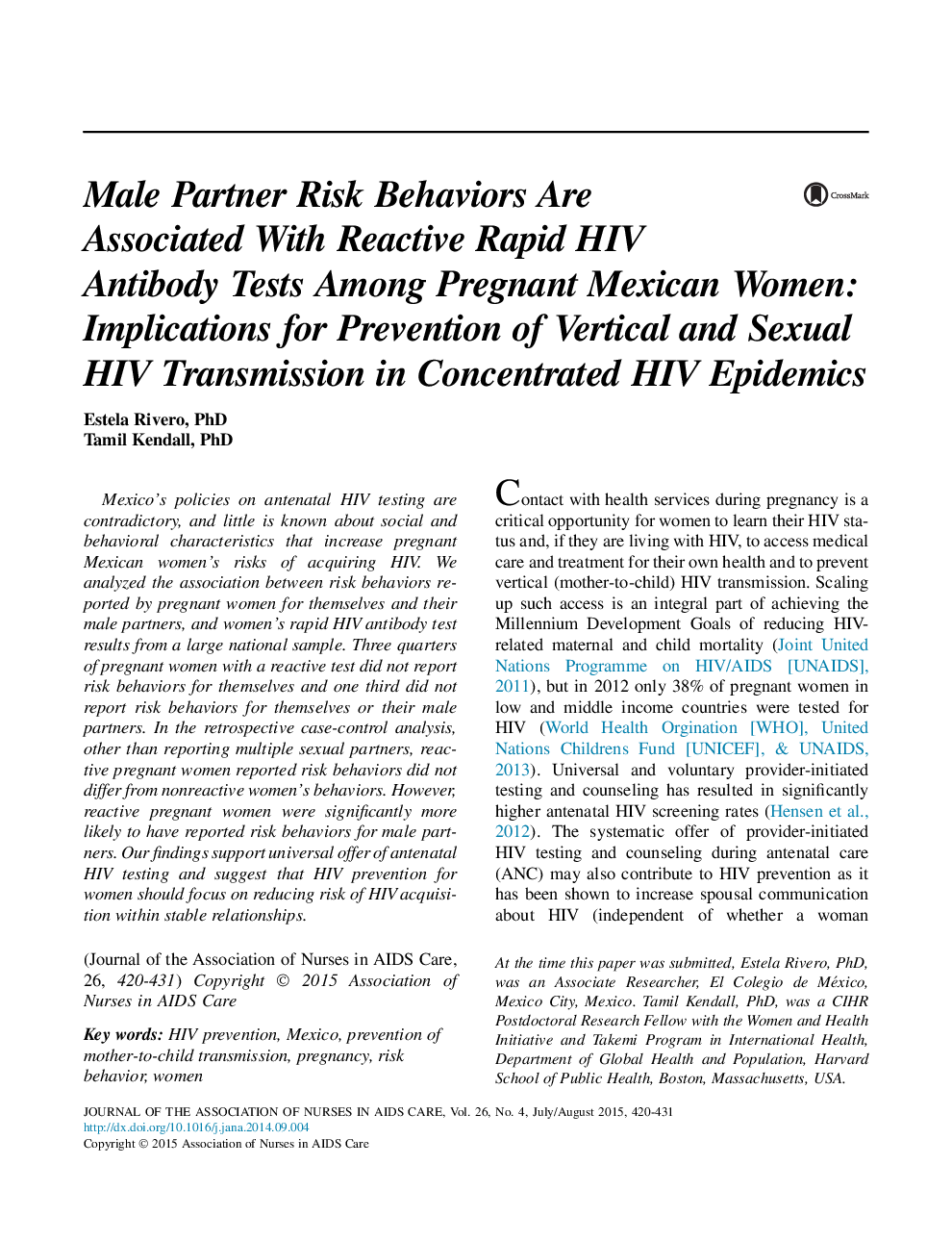| Article ID | Journal | Published Year | Pages | File Type |
|---|---|---|---|---|
| 2660225 | Journal of the Association of Nurses in AIDS Care | 2015 | 12 Pages |
Mexico's policies on antenatal HIV testing are contradictory, and little is known about social and behavioral characteristics that increase pregnant Mexican women's risks of acquiring HIV. We analyzed the association between risk behaviors reported by pregnant women for themselves and their male partners, and women's rapid HIV antibody test results from a large national sample. Three quarters of pregnant women with a reactive test did not report risk behaviors for themselves and one third did not report risk behaviors for themselves or their male partners. In the retrospective case-control analysis, other than reporting multiple sexual partners, reactive pregnant women reported risk behaviors did not differ from nonreactive women's behaviors. However, reactive pregnant women were significantly more likely to have reported risk behaviors for male partners. Our findings support universal offer of antenatal HIV testing and suggest that HIV prevention for women should focus on reducing risk of HIV acquisition within stable relationships.
